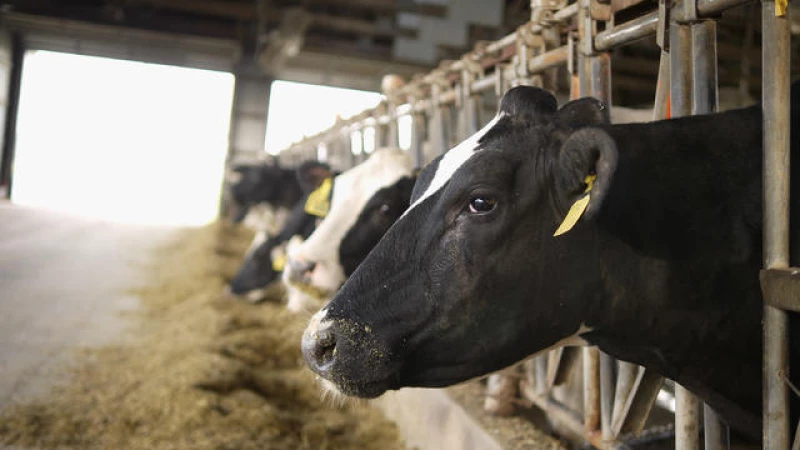Reports out of Texas indicate a rare case of bird flu in a human, linked to contact with potentially infected cattle. This news follows recent announcements from federal agencies about the spread of the virus to dairy cattle in several states, including Texas.
The Texas Department of State Health Services revealed that the infected individual only showed symptoms of eye inflammation. The patient, who has not been publicly named, underwent testing last week, with confirmation from the Centers for Disease Control and Prevention coming over the weekend. Treatment for the individual includes the antiviral drug oseltamivir, known for its effectiveness against influenza A and B, as well as the swine flu.
Health officials in Texas noted that human cases of bird flu, also called H5N1, can manifest with a variety of symptoms, ranging from mild issues like eye infections and respiratory problems to more severe conditions like pneumonia and even death.
The recent announcement from the CDC revealed that a person in the United States has been infected with the bird flu, a virus that typically affects wild birds but can also spread to domestic species. This marks only the second case of human contraction of the bird flu in the country. The virus has caused significant devastation to bird populations worldwide during its recent outbreak, and it has even crossed over to other mammal species, resulting in the deaths of sea lions, seals, and a polar bear.
Recent reports from federal agencies have confirmed that dairy cattle are now among the affected animal groups. Cases of the virus have been identified in cattle from Texas, Kansas, and Michigan, marking the first instance of dairy cattle in the U.S. being impacted by this specific strain of the virus.
While the bird flu has spread to individuals, the Texas health department emphasized that human-to-human transmission of the virus remains "extremely rare." According to the department, initial tests indicate that the virus has not mutated in a way that would increase its transmissibility among humans. The DSHS (Department of State Health Services) is working closely with affected dairy farms to provide guidance on minimizing workers' exposure to the virus and monitoring individuals for flu-like symptoms.
The CDC stated that this recent case is a reminder of the ongoing threat posed by avian flu and the importance of vigilance in monitoring and controlling its spread.
What are the human symptoms of bird flu?
According to a health alert sent out to clinicians, signs and symptoms of bird flu in humans are similar to that of a typical flu. They include a fever of at least 100 degrees Fahrenheit, or a feeling of being feverish, and chills, cough, sore throat, runny nose, headaches, fatigue, difficulty breathing, diarrhea, nausea, vomiting and seizures. What most notably separates it from the seasonal flu, however, is eye redness, otherwise known as conjunctivitis.
"Because of this, healthcare providers including optometrists and ophthalmologists, should be aware of the potential of individuals presenting with conjunctivitis who have had exposure to affected animals," the health alert says. "Reports of severe avian influenza A(H5N1) illness in humans have included fulminant pneumonia leading to respiratory failure, acute respiratory distress syndrome, septic shock, and death."
Officials have emphasized that risk to general public remains low, and that practicing good hygiene can help prevent the spread of this and many other illnesses.
"In order to protect yourself from the flu, it is important to wash your hands frequently, cover your coughs and sneezes, avoid picking up dead birds and animals, and stay home if you are feeling unwell," advised the health alert.
Due to the impact on dairy cattle, authorities have also cautioned against consuming raw unpasteurized milk, which can cause illness in humans even if it is not contaminated with bird flu. It is mandatory for milk sold in stores to be pasteurized, making it safe for consumption, officials confirmed.







